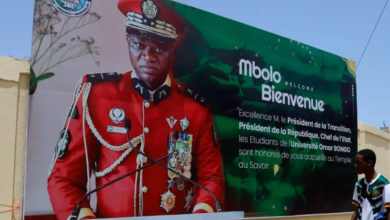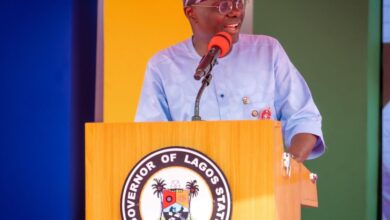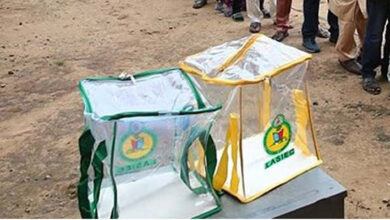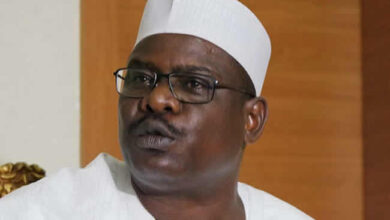Why we banish men who sleep with other people’s wives – Elekor of Ekor, Oba Alufah
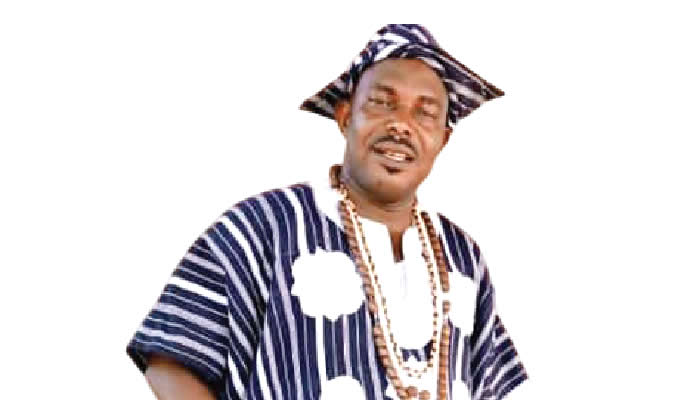
Elekor of Ekor (Olowe III), His Royal Highness, Oba Raphael Alufah, shares with ADEYINKA ADEDIPE his journey to the throne and the rich culture of the town in Akoko Edo Local Government Area of Edo State
Can you tell us about your kingdom?
Ekor is a community that is part of the Okpameri ethnic nationality in Akoko Edo, in the Edo North Local Government Area of the state. We migrated from Benin a long time ago, and the first settler here was Ihiekor.
Ihiekor can be said to have been the first Oba before my grandfather took over. Then it became my father’s turn, and subsequently mine, which is why I am called Olowe III. Olowe is one of the ruling houses in Ekor.
How many ruling houses are there in Ekor?
We hardly have issues with succession because the ruling houses are well known. There are four quarters in Ekor, and each quarter has a ruling house. In my quarter, Afeoka, the ruling house is Olowe. In the Afenari quarter, the ruling house is called Angulu.
We also have the Afeozo quarter, where the ruling house is Ajogun, which produced my predecessor. Lastly, there is Afuduavor, and the ruling house there is Obanaye, from where the first Oba came. The kingship rotates among these ruling houses without any rancour.
What was the most memorable aspect of your coronation?
I was installed on 20 December 2015, but I had received my letter of appointment earlier. My coronation took place on 28 December 2018, three years after my installation. It was a fine occasion, and I was presented with my staff of office by the government.
The calibre of traditional rulers who attended made the event unique. The love shown to me by the people was overwhelming. I also had people from my maternal home in attendance, and they brought a cultural dance group that accompanied me to the venue.
There were gunshots in salute to mark the occasion. All I can say is that it was a truly unique day.
How has it been leading your people?
The first thing I would say is that understanding is key when you are a king or leader. My people know me well, and to ensure mutual understanding, I make it a point to address them in our native language—especially when the elders are present—because that is the most effective way to communicate.
I was born and raised in Ekor, so when I speak our language, everyone understands me.
Beyond language, would you say education has helped you in administering your kingdom?
Absolutely. Education has been very helpful in my duties. It has given me the wisdom and exposure needed to lead. I’ve been able to apply it in managing my people. They say education is key, and that is why I encourage my people to send their children to school.
We have a fund dedicated to supporting academically bright children whose parents cannot afford to send them to school. We take inspiration from what Obafemi Awolowo did in his time, and we are trying to emulate that in order to develop our community.
What was your childhood like, and did anyone oppose your coronation?
Growing up was difficult, but it was God’s wisdom that saw me through. I am the last child of my father, and people were surprised when I emerged as the Oba. I have many older brothers who could easily be my fathers, given the age gap.
I was surprised when I was chosen, but my elder brothers have always prayed for me, supported me, and treated me like their child. There has never been any conflict within the family. They love me, and I love them in return.
There are still many challenges today, but whenever anything seems too difficult, I take it to God—and He makes it easier.
Did you ever expect to be chosen as Oba during the search for a new king?
As I mentioned earlier, I never thought I would be chosen, as I was the youngest of my father’s children. One thing about Ekor is that the Obas usually live long. My grandfather lived for more than 120 years, and my father lived for 100 years.
So, when the last Oba spent only 10 years on the throne, it caused concern in the community, and people had to investigate. That’s how I came to be selected. The selection must have ancestral approval—you don’t force your way onto the throne. Since becoming Oba, I have never been ill or taken medication. I go to the farm regularly—even though I have workers there, I go to supervise them. I consider it a way to stay fit.
What taboos should indigenes and visitors be aware of?
Where there is no law, people behave however they like. In our community, certain behaviours are not tolerated. For instance, it is a taboo to have carnal knowledge of another man’s wife. If caught, you can be banished from the community.
We also forbid our youths from engaging in indecent acts such as internet fraud, known locally as “Yahoo Yahoo”. Ekor is a sacred place. People come here for solutions to their problems.
When my father was on the throne, the Gbiri of Ekpemi had issues in his community and came to Ekor. He was accepted, given land, and even had children here.
There are other forbidden acts. If you engage in certain things, the repercussions will eventually force you to confess. If someone is confirmed to be a witch, they are buried in the evil forest when they die, and their children will never know their burial site.
This is a common practice among the Okpameri people, to which we belong. We inherited these traditions, and we still practise them. Here, you cannot afford to be a witch.
What is the most important festival in Ekor, and how is it celebrated?
The most important is the Ikpihionua festival, celebrated every seven years in honour of the men. It attracts people from far and wide, and the entire community is filled with excitement. Any masquerade that appears on that day is considered special.
The second masquerade, which comes from my quarters, is called Erimerio. It only comes out for about 30 minutes. It blesses the people and will not appear again for another seven years. Those who made pledges during its last appearance redeem them during the next edition.
The second key festival is Ele, celebrated in honour of women. On that day, women dress in their finest clothes, dance, and go to appease the ‘mother of the town’, who resides in a shrine.
How do you promote peaceful coexistence among people of different faiths in Ekor?
As a traditional ruler, it is my duty to bring people together. I am a Christian, but when Muslims are observing Ramadan, I sometimes fast with them and provide food for breaking their fast. I also engage with traditionalists.
I associate with everyone. When people see me embracing all faiths, they have no reason to fight. I also preach against religious intolerance.
How do locals coexist with visitors or those who come to work in the community?
We have many non-indigenes in Ekor due to our vast farmlands. They mostly come to farm, especially the Ebira people from Kogi State. Some of them have even built houses here.
My grandmother was also from Ebiraland. So, we coexist peacefully—we farm and work together. People also form cooperative groups and work on one another’s farms.
Are there expected codes of conduct for visitors and workers?
We do not tolerate stealing. Anyone caught is expelled from the town. However, we also discourage taking the law into one’s own hands.
There was a case where a non-indigene caught another stealing from his farm and attacked him with a machete instead of reporting to me. Both were forgiven after sending emissaries to the palace and signing undertakings not to repeat such acts.
We have a local vigilante group. I handle civil cases, while criminal matters are referred to government security agencies.
How do you handle people who falsely claim to be royalty?
We know ourselves. If someone claims to be an Oba, the real question is—are they recognised by the government or the people?
Anyone who engages in such deception becomes a laughingstock. However, if a person tries to form a parallel leadership while an Oba is on the throne, the law will take its course.
What are the challenges of being an Oba in Ekor?
A major challenge is a lack of funds. I often use my personal resources to assist community members, especially the elderly. They come to the palace with financial concerns, and I do my best to support them.
Even at night, if someone comes with a problem, I must attend to it. Otherwise, it would seem as if I don’t care. I’m always very busy.
How did you feel when you were chosen to lead your people?
The day I received the news, it felt like a dream—even though, as a prince from a ruling house, I was eligible. I was surprised but grateful. I thanked God and vowed to do my best for my people.
With your busy schedule, how do you stay connected with your family?
Due to my position, a member of the family is appointed to attend to the day-to-day needs of the family. If issues arise in my absence, that person handles them. However, if there’s something that requires my personal attention, I step in.
Despite my responsibilities, I make sure my family is well cared for.
Have you ever been given a wife by the community, as is done in some cultures?
Given the current situation in the country, it might be difficult to accept such a gift. Children born from such unions must be cared for. I would say God has blessed me with children.
My firstborn is a graduate and married, the second is doing her Master’s, another is in Ibadan, one just gained admission to the University of Maritime in Delta State, and another is preparing to sit for WAEC.
Raising children is hard work. While my faith doesn’t prevent me from taking more wives as Oba, I won’t take any step that will become a burden to others.
How do you rest from the rigours of your role?
Rest is important. If possible, I go on vacation. The work of a traditional ruler is demanding. So, after dealing with matters intensely, I might take a break in Lagos, Abuja, or Benin.
During such periods, the council of chiefs manages the community. If any critical issue arises, they wait until I return.
How should the government relate with traditional rulers?
This is a major concern. Traditional rulers function as the government at the grassroots level. We are close to the people and understand their needs. It is difficult to see councillors, but the Oba is always accessible.
The government must find a way to include traditional rulers in governance. They should also allocate some funds to traditional institutions to enable us to run our communities effectively. The closer you are to the people, the more challenges you face.
